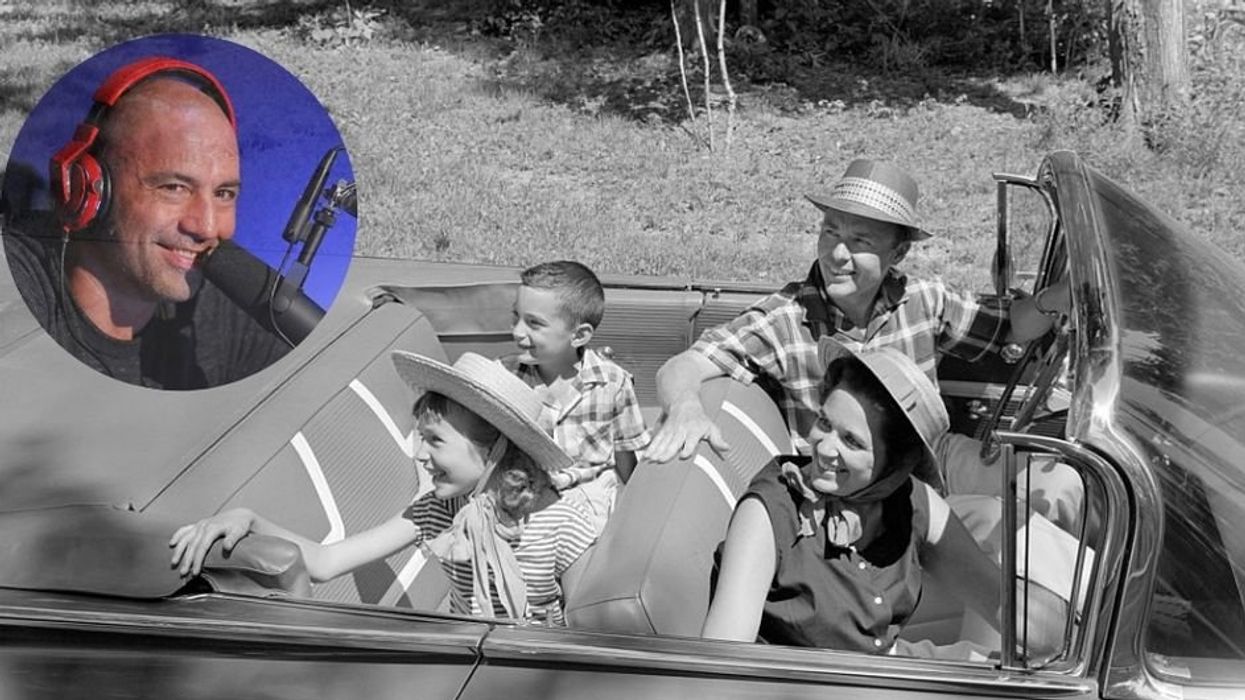WASHINGTON (AP/TheBlaze) — Democrats are counting on their New England friends to help them pick up Senate seats and construct a barrier against losses in Nebraska and elsewhere that could erase their majority.
The National Republican Senatorial Committee has stopped spending money in Maine, where former Gov. Angus King, an independent, leads in the polls. King is seen as likely to side with Democrats if he wins. King has announced that he does not plan to caucus with either party, despite previously holding a party affiliation with the Democrats. However, given the degree to which Republicans in Maine are increasingly focusing on him as their obstacle to taking Maine's Senate seat, this apparently has convinced no one.
In Massachusetts, Republican Sen. Scott Brown is suddenly considered the underdog against Elizabeth Warren. The latest Rasmussen Reports poll shows Warren leading by five points and over 50 percent, well outside the margin of error. Previous polls have shown Warren up 6. With Massachusetts considered a lock for President Obama, Brown also faces steep headwinds, and even in the event of a Romney victory, would be unlikely to benefit from any coat tails that Romney might have. Brown's increasingly negative campaign signals that his team is aware of this, and are worried, though Warren is still running the more aggressively negative spots. Nevertheless, Brown has been forced into a defensive stance by Warren, with recent ads aimed more at rebutting her attacks than at pressing his own case, and looks to be on the ropes.
Republican hopes of swiping the seat in Connecticut are also fading, though polls in the Nutmeg State are considerably more volatile than in Massachusetts. Nevertheless, it has been almost a month since Republican nominee Linda McMahon held an outright lead in the polls, with current numbers showing at best a tie between her and Democrat Chris Murphy, and at worst a 6 point deficit. An unusually contentious series of primary debates has also stepped up the acrimony in this race, with each side fighting to define the other as unacceptable. McMahon's recent ads, however, have skewed more positive.
The loss of two seats in New England complicates the GOP calculation for majority control. Republicans would have to gain a net of six seats, five seats if Mitt Romney wins the presidency. Democrats currently have the edge, 53-47. However, that kind of gain looks increasingly difficult to achieve, as currently the only favorably leaning pickup for the GOP is the open Nebraska seat, where Republican nominee Deb Fischer is beating Democratic nominee Bob Kerrey.
Other areas where pickups were thought to be more certain, however, are either locked in a tie or falling outside the GOP's reach. In Pennsylvania, a raft of favorable recent polling has buoyed the candidacy of Republican nominee Tom Smith, who is now locked in a tie with incumbent Democratic Senator Bob Casey. Montana Democratic Senator Jon Tester has slid slightly against challenger Danny Rehberg, giving Republicans a chance in a state that is otherwise considered a lock for Mitt Romney, and where coat tails could propel their nominee to victory. In North Dakota, despite a stronger than usual showing by Democratic nominee Heidi Heitkamp, Republican nominee Rick Berg leads in the most recent polling.
However, these are the lone bright spots for the GOP, which is otherwise either fighting an uphill battle to pick up new seats or besieged in its attempts to keep hold of its old seats. In Missouri, the implosion of Republican nominee Todd Akin after a series of universally condemned comments about "legitimate rape" has left Democratic Senator Claire McCaskill a clear favorite, especially given the refusal by the National Republican Senatorial Committee (NRSC) to invest in the race. Popular Ohio Senator Sherrod Brown has thus far managed to keep ahead of his Republican challenger Josh Mandel in spite of the state's razor thin margins in polling on the Presidential race. In Wisconsin, Democrat Tammy Baldwin is narrowly leading former Governor Tommy Thompson, who recently came under fire for comments by his son suggesting that President Obama go back to Kenya. And in Indiana, where GOP nominee Richard Mourdock recently came under fire for controversial comments about abortion in the case of rape, Democratic nominee Joe Donnelly may be eyeing a pickup opportunity.
In other words, the loss of a seat that was symbolic of rising Republican power in 2010 (Scott Brown's seat), and the inability of the GOP to make up for the likely loss of former Maine Senator Olympia Snowe's Senate seat is not a problem Republicans can afford this year in its battle to keep the Senate. Indeed, given the momentum enjoyed by Republican presidential nominee Mitt Romney, the latter looks almost certain to face a divided government if he assumes the presidency next year.






